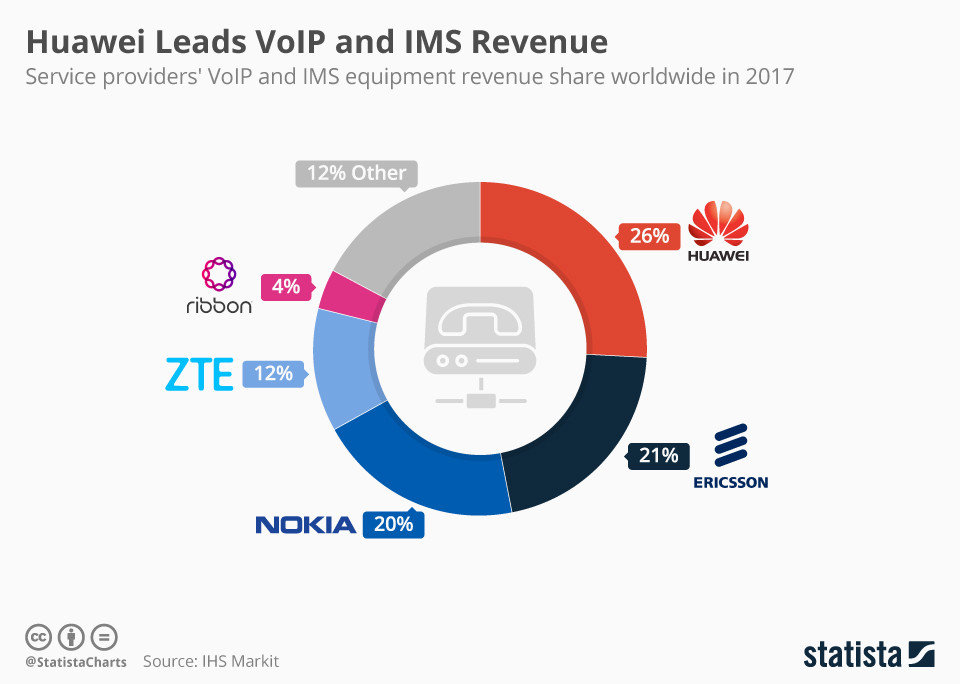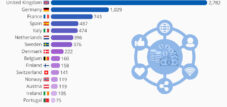Huawei, the Chinese telecommunications company, has approximately a quarter of global revenue from VoIP and IMS IHS Markit . Ericsson, the Swedish telecommunications company, holds around 21 percent of global revenue from VoIP and IMS, followed by Nokia and ZTE.
Voice over Internet Protocol (VoIP) allows users to make voice calls over a broadband internet connection instead of a traditional telephone line. Overall, VoIP revenue declined by 12 percent between 2017 and 2018 compared to the previous year. This decline is exacerbated by the sluggish development of the Voice over LTE (VoLTE) network and stagnant spending. VoLTE was the primary growth driver for VoIP and IMS, so the obstacles to broadband network expansion are hindering the VoIP market.
Huawei, the Chinese telecommunications company, has cornered about a quarter of global revenue from VoIP and IMS equipment, according to estimates from IHS Markit . Ericsson, the Swedish telecommunications company, holds about 21 percent of the VoIP and IMS global revenue, followed by Nokia and ZTE.
Voice over Internet Protocol (VoIP) allows users to make voice calls using broadband internet connection instead of a standard phone line. Overall the VoIP revenue dropped by 12 percent year over year between 2017 and 2018. The dip is fueled by the sluggish voice over LTE (VoLTE) network advancements and flatlined spending. VoLTE was the main driver of VoIP and IMS growth, so roadblocks for the broadband network stymie VoIP market expansion.


